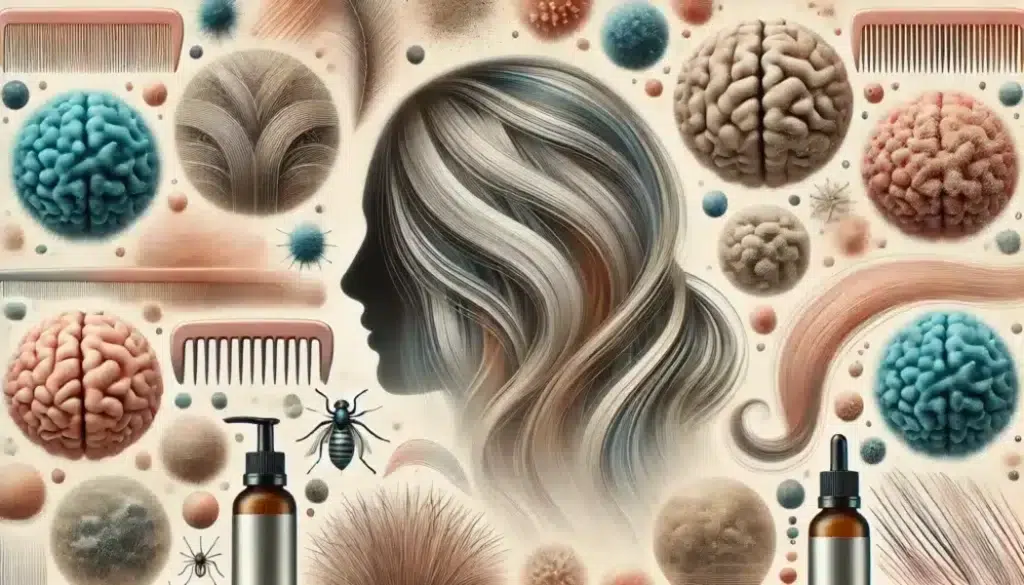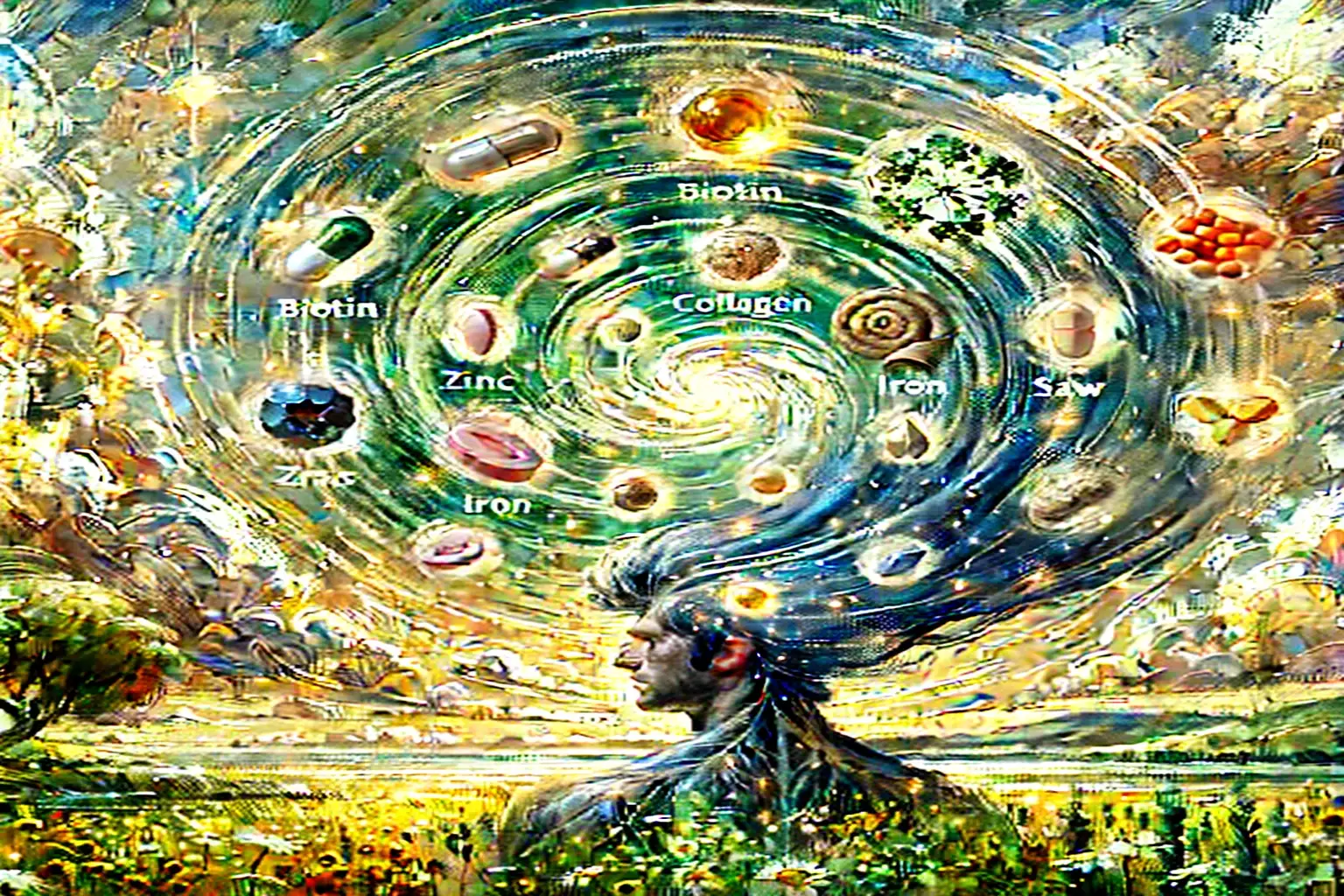Knowing what’s going on with your scalp is like the first step in any hair care journey. Imagine treating a dry scalp with products meant for oily hair—total mismatch! That’s why figuring out your exact issue is super important. Whether it’s dandruff, dryness, or itchiness, pinning down the problem helps you choose the right solution.
We’ve got a range of common scalp issues, each with its own set of clues. It might be as simple as flakiness or as complex as patchy hair loss. Each issue can stem from things like stress, poor diet, or even that shampoo you thought was a game-changer but somehow doesn’t sit right.

Spotting these signs asks for a bit of observation. Are you seeing redness, unusual hair fall, or persistent itchiness? These can be red flags signaling your scalp needs some attention.
Sorting out these problems will go a long way in finding the right products that actually work for you. It’s all about starting right so you can get ahead in your hair care game.
Addressing Lifestyle and Behavioral Changes
Recognizing what might be messing with your hair involves a bit of tough love. Poor nutrition, costant irritability, smoking, or living in a polluted environment can all take a toll on your hair health. These aren’t just bad habits—they’re hair enemies!
Let’s talk food first. A diet lacking in essential vitamins and minerals can be a sneaky culprit behind those limp locks. Think of your hair like a plant; it needs the right nutrients to grow. Cut back on junk food, and bring in more greens, lean proteins, and plenty of water.
Stress and your hair? They’re definitely not friends! High stress levels can trigger hair shedding, thanks to hormonal changes. Finding time to chill, whether through meditation or just a walk in the park, can improve your mental health and your hair’s resilience.

Then there’s the environment you live in. Air pollution can affect your hair and scalp, often causing more oil and dirt buildup than you’d ever want. While you might not move to a less polluted area, a good routine of washing your hair with a clarifying shampoo can help fight those effects.
By making these tweaks to how you live your day-to-day life, you’re setting your hair up for a stronger, healthier future. Lifestyle changes don’t just support better hair—they boost your overall well-being too.
Choosing the Right Hair Growth Supplement
Taking your hair care up a notch often means diving into the world of supplements. It’s not just about grabbing any bottle off the shelf; picking the right supplement can really set the tone for healthy hair growth.
Start with knowing your hair goals. Are you looking to boost growth, reduce thinning, or maybe add some shine? Different products target different needs, so a clear goal will narrow down your choices.
Ingredient labels can seem like a puzzle at first, but they’re the roadmap to understanding what you’re putting into your body. Key players in hair growth supplements include biotin, known for strengthening hair, and keratin, which forms the raw material for hair. Make sure the product has what your hair truly craves.
Another aspect to watch out for is whether the supplement aligns with any dietary restrictions you might have. Vegan, gluten-free, or allergen-free varieties are available, so no need to compromise on your health plans.
Reading reviews and doing a bit of research online can also provide real-world insights into what works and what doesn’t. While everyone’s hair is unique, popular feedback often hints at effectiveness.
Locking in on the right supplement involves understanding what your hair needs, interpreting ingredient labels, and doing some background checks. With the right choice, you’re well on your way to achieving those enviable locks.

There are currently several powerful remedies available that can significantly improve the appearance and health of your scalp. Their primary function is to reduce inflammation in the scalp and effectively stimulate hair growth:
- Laser therapy is an innovative method for addressing hair problems. It has a strong effect on hair follicles, stimulating their growth. This treatment is easy to use, widely accessible, and has no harmful effects on your health.
- Hair growth lotions contain minoxidil, a clinically proven hair growth agent. Additionally, various herbal ingredients in these lotions further stimulate hair growth and block DHT (a derivative of testosterone), which is directly responsible for hair loss in both men and women.
- Supplements provide essential nutrients required for healthy hair growth, compensating for deficiencies that may result from an improper lifestyle. By working from within, these supplements have been scientifically proven to promote hair growth.
- Anti-stress supplements. If you lead a fast-paced urban lifestyle, you are likely exposed to stress—sometimes without even realizing it. Chronic stress can often contribute to hair problems. These supplements help restore mental balance and, in turn, enhance the effectiveness of all the above treatments.
Enhancing Results with Natural Preparations
Supplements can give your hair a much-needed boost, but pairing them with natural preparations? That’s where the magic truly happens. Natural remedies have been around for ages, and when combined with dietary supplements, they can take your hair care routine to the next level.
From coconut oil to aloe vera, these remedies are common but powerful heavyweights in natural hair care. Coconut oil is known for its moisturizing properties while aloe vera can soothe the scalp like nobody’s business. Mixing these with your supplement regimen can lead to a healthier, happier scalp.

Consistency is key here. Regularly incorporating natural treatments along with your supplements can amplify the effects, giving you more defined results. It’s like having a one-two punch in your hair care arsenal!
Keep an eye out for our next series, where we’ll dive into effective solutions for scalp problems. From dandruff busters to remedies for itchiness, we’ll cover it all. Stay tuned and follow along—big hair wins are coming your way!
Stay with us — the best is yet to come.
By following our advice, you’re doing the most you can for your hair.
Be the first to know when we publish new guides, tests, and proven strategies for stronger, healthier hair.
👉 Visit the About Me page to learn more about my journey, mission, and why helping people with hair health is so personal to me.
Want healthier, stronger hair? Discover 8 science-backed habits that protect your scalp and boost natural growth. Get your free PDF guide today!
Disclaimer: This article is for informational purposes only and is not a substitute for professional medical advice. Sensitive claims are supported with scientific references, and full product details can always be found on the official websites of the respective manufacturers or distributors.
Some links in this article are affiliate links. If you choose to make a purchase through them, I may earn a small commission at no extra cost to you — helping me keep HairGrowGenius running. Thank you for your support!

💊 FAQ – Choosing the Right Hair Growth Supplement
🔍 What ingredients should I look for in a hair growth supplement?
Look for clinically supported nutrients like biotin, zinc, iron (if deficient), B-complex vitamins, vitamin D, and collagen. Adaptogens like Rhodiola or ashwagandha can also help by reducing stress-related hair loss. Bonus points if the formula includes DHT blockers like saw palmetto or pumpkin seed extract.
🧬 Should I choose a supplement based on my hair type or cause of hair loss?
Absolutely. If your hair is thinning due to stress, hormonal changes, or post-illness recovery, different nutrients will help in each case. For example, stress-related shedding may respond to adaptogens and B vitamins, while postpartum hair loss may benefit from iron and collagen support.
⏳ How long should I take a supplement before expecting results?
Patience is key. Most people need at least 8 to 12 weeks of consistent use before seeing visible changes. Hair grows in cycles, so improvements in strength, shine, or reduced shedding often appear gradually — not overnight.
🧾 Last updated: June 2025 based on latest research.


Leave a Reply